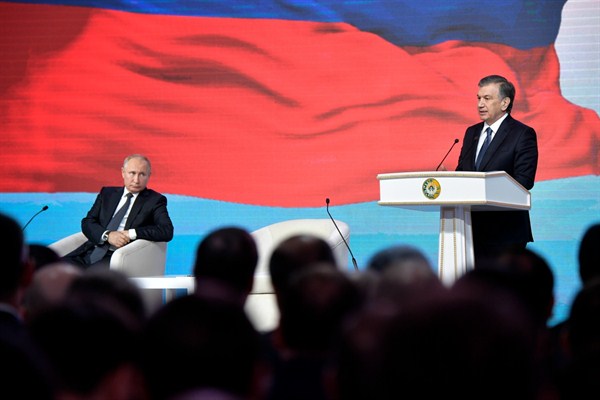On Oct. 18, Russian President Vladimir Putin arrived in Uzbekistan for the first meeting of the newly established Uzbekistan-Russia Interregional Cooperation Forum. Putin attended the symbolic groundbreaking ceremony of a new $11 billion nuclear power plant, signing investment deals totaling $25 billion, mostly in the energy sector. The visit was a clear illustration of how significantly Uzbekistan has changed since the death in August 2016 of Islam Karimov, the country’s first post-Soviet president who ruled for 27 years.
Under Karimov, Uzbekistan pursued a path of outward isolation and inward repression. His successor, President Shavkat Mirziyoyev, has slowly opened Uzbekistan up since coming to power after Karimov’s death. Domestically, Mirziyoyev has liberalized the currency, dismissed the country’s powerful security chief, pardoned 2,700 political prisoners and relaxed censorship. Within the region, Uzbekistan has moved to mend ties with its neighbors, trying to position itself as the hub of Central Asia both politically and economically.
Beyond the region, Uzbekistan is pursuing ambitious policies aimed at globalizing the Uzbek economy, courting Russia, China, the United States, Turkey and Iran. These moves have produced results. Uzbekistan’s trade increased by 11.3 percent in 2017, with the largest gains coming from within Central Asia itself. Foreign direct investment has doubled since 2016.

